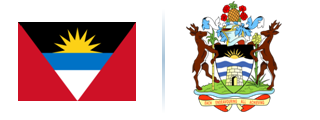Last Update: September 2025


| International Covenant on Economic, Social and Cultural Rights | International Convention on the Elimination of all Forms of Racism | Convention on the Rights of Persons with Disabilities | Convention on the Elimination of all Forms of Discrimination against Women | Convention on the Rights of the Child | International Convention on the Protection of the Rights of All Migrant Workers and Members of their Families | Constituent Agreement of the Development Fund for Indigenous Peoples in Latin America and the Caribbean |
| 30 January 2026 | 25 October 1988 | 7 January 2016 | 1 August 1989 | 5 October 1993 | 30 January 2026 | 30 January 2026 |
| View details | View details | View details | View details | View details | View details | View details |
Year of Latest Observed Constitution |
Social Housing |
Work and Social Security |
Public Health |
Public Education |
Social Development |
Children and Adolescents |
Youth/Young Adults |
Women |
Older Persons |
Persons with Disabilities |
Afrodecendants and Indigenous Peoples |
Migrants |
| 1981 | ||||||||||||
| View details | View details | View details | View details | View details | View details | View details | View details | View details | View details | View details | View details |
Children and Adolescents |
Youth/Young Adults |
Older Persons |
Women |
Peoples with Disabilites |
Afrodescendants and Indigenous Peoples |
Migrants |
Public Education |
Work and Social Security |
Social Housing |
Public Health |
Social Development |
|
| Legal Instrument | Ley de Cuidado y Protección de los Niños, Niñas | n.d. | n.d. | The Sexual Offences Act, 1995. | n.d. | n.d. | The Immigration and Passport Act (2014) | Ley de Educación | Codigo de Trabajo | Ley de Vivienda y Eliminación de Viviendas Precarias | Ley de Salud Pública | n.d. |
| Law | Law | Law | Law | Law | Law | Law | Law |
| Country | Antigua and Barbuda |
| Main authority | National Economic and Social Council (NESC) |
| Year of creation | 2004 |
| Coordinating authority | Delegado(a) del Primer Ministro |
| Members | Congreso de Sindicatos; Cámara de Comercio e Industria de Antigua; Federación de Empleadores de Antigua y Barbuda; Asociación de Hoteles y Turismo de Antigua; Organización Profesional de la Mujer en Antigua y Barbuda; Asociación Médica de Antigua y Barbuda; Grupo de Conocimiento del Medio; Consejo Cristiano de Antigua; Asociación Evangélica de Antigua y Barbuda; Asociación de Abogados de Antigua y Barbuda; Asociación de Jubilados de Antigua y Barbuda; Liga de Cooperativas de Antigua y Barbuda; Asociación de la Industria y la Pequeña Empresa de Antigua y Barbuda; Instituto de Contadores Públicos de Antigua y Barbuda; Consejo Nacional de la Juventud de Antigua y Barbuda; Asociación de Personas con Discapacidad de Antigua y Barbuda; industria de la construcción, y sector financiero. |
| Country | Antigua and Barbuda |
| Main authority | Ministry of Social and Urban Transformation |
| Year of creation | 2004 |
| Mission | Es responsable de proveer servicios y programas dirigidos a mejorar los estándares de vida, incrementar los beneficios de protección social, y reducir la incidencia de la pobreza en la sociedad. Para ello, el ministerio colabora con otros ministerios, ONGs, agencias regionales e internacionales, que ofrecen programas, servicios y asistencia, para promover la inclusión social y la reducción de la pobreza, para así romper los ciclos de exclusión y desigualdad. En Mayo de 2020, se agregó el área de Economía Azul (Blue Economy) a la cartera del ministerio, la cual pone énfasis en la salud del océano y su ecosistema. El modelo busca la mejora del bienestar humano y la igualdad social, al mismo tiempo de reducir de manera significativa los riesgos medio ambientales y la escasez ecológica. |
| Incumbent | Rawdon Nirobi Antonio Turner (2024) |
| Population segment | Children and Adolescents |
Youth/Young Adults |
Older Persons |
Persons with Disabilities |
Women |
Migrants |
| Main protection mechanism | Ministerio de Educación, Deporte, Juventud y Asuntos de Género | Ministry of Social Transformation and Human Resource Development | Department of Immigration | |||
| Legal Instrument | The Immigration and Passport Act (2014) |
|
Technical-operational dimension | |||||||
| Unique Registry of Participants | Sistema Integrado de Administración Financiera /b | Sectoral Plan for Social Development | Transparence - system for accessing public information from the State | Integrated Social Information System |
Evaluation mechanisms for social programs |
|||
General |
Sectorial |
General |
Sectorial |
|||||
| Ministry of Social and Urban Transformation | ||||||||